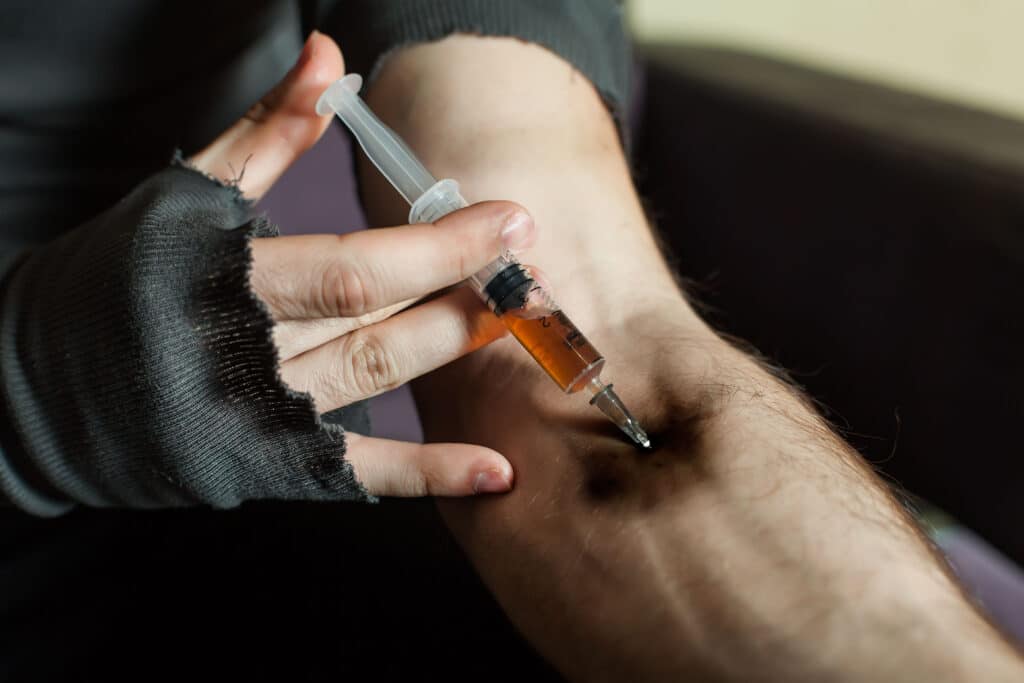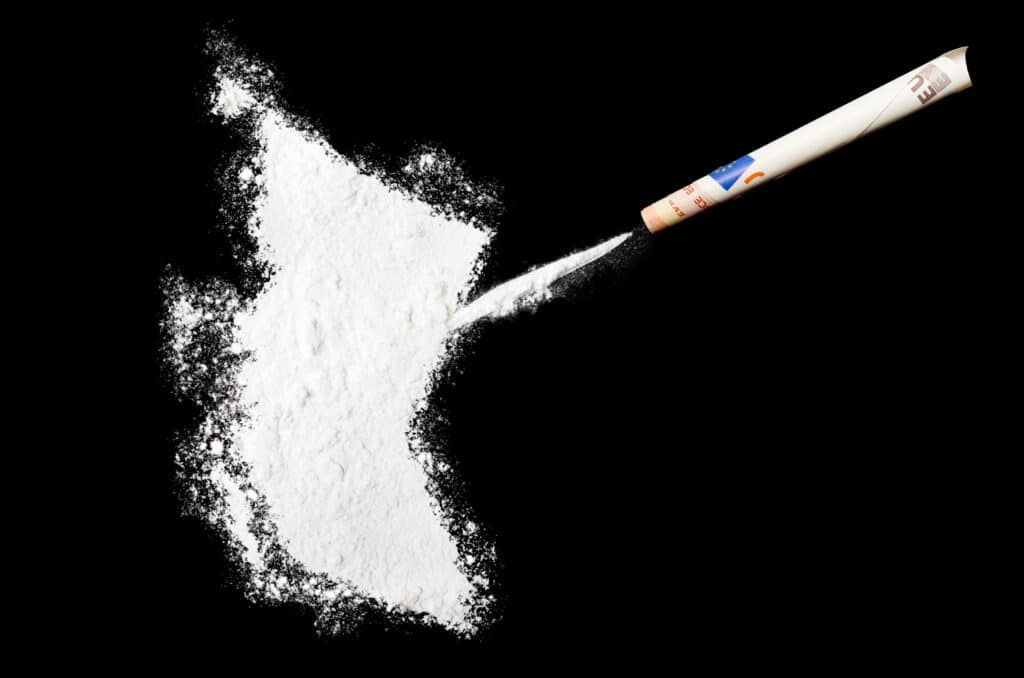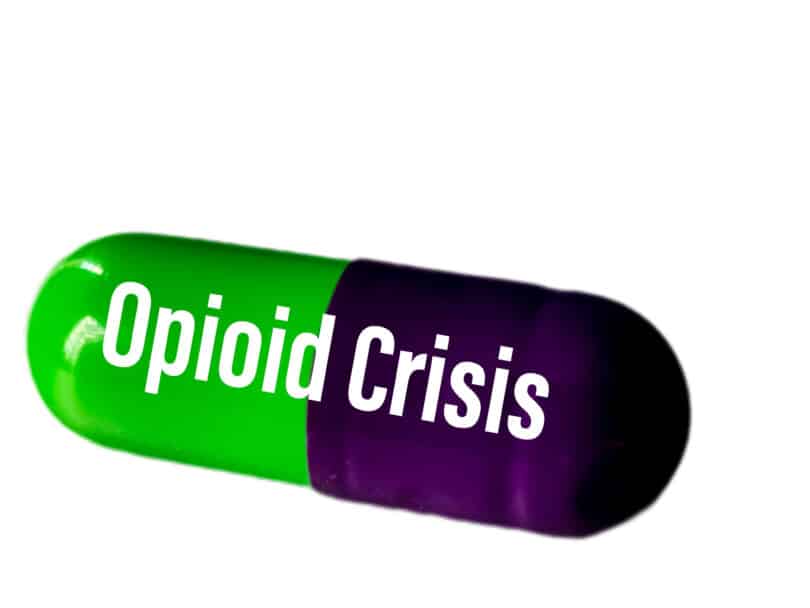There are two things going on right now. A large and growing opioid crisis; and a tendency toward lessening restrictions on some drugs. They both happen in different places throughout the world, though the opioid crisis is mainly a US issue. While some think decriminalizing opioids will solve the problem of the opioid crisis, perhaps that thinking is exactly why we’re in this mess.
This article is the express opinion of the writer, in regards to a recent article in favor of decriminalizing opioids.
Portugal’s drug decriminalization in 2001
In 2001, Portugal did the unthinkable (at the time) and decriminalized all drugs. It wasn’t that the country wanted everyone to do drugs more freely; it was to combat a growing heroin issue, which had led to a growing issue with needle sharing and HIV. This was really an AIDS problem, and at the time of the decriminalization, it was estimated that half of all new HIV cases every year, were a result of sharing needles.
Portugal did not legalize these drugs, or their possession or use. What it did, was institute a change in policy that brought the possession of these drugs down to an administrative offense, instead of a criminal charge. This no longer applies once the offender has more than a 10-day supply of their drug, in their possession. The idea is to get people help, and not worry about criminalizing drug use behavior.
In terms of how effective this change has been, its estimated that between 2001-2015, there was a 50% decrease in drug convictions. Portugal also currently has a drug death rate below the average in the EU. The country first saw a reduction in deaths in the first few years of the policy’s existence. They oscillated a bit over time, but never went up to where they were before.

What we also know after all these years, is that drug use didn’t spiral out of control in Portugal after the decriminalization. Whatever debate there may be about the exact positive outcomes; there certainly weren’t any detrimental ones. With over 20 years in existence, if this policy was harmful, we’d know it.
The reason I bring up Portugal, and this decriminalization; is because it seems that many locations in the world want to adopt a similar policy today; in order to deal with today’s growing opioid issue. Right now, Portugal is the best example in recent history, of this change from hard drugs being criminalized, to being decriminalized.
Today’s opioid crisis
The current opioid issue is predominantly a US issue, but as the drugs are provided by pharmaceutical companies; this issue is becoming more and more widespread. The crisis focuses not on all opioids, but on synthetic opioids made through pharmaceutical production. Though heroin certainly causes some damage, its not the focus of this current problem. Heroin overdoses have remained relatively consistent through its history.
Things spiraled out of control when the Sackler family-run Purdue Pharma company put out the medication OxyContin in 1996. Prior to this, while opiate medications were available in the form of weaker drugs like codeine (which is a naturally occurring compound of the poppy plant), there wasn’t a market for fully synthetic opioids. OxyContin came with the promise of pain relief for 12 hours, without needing to take more. For pain patients, this sounded like a miracle.
It wasn’t true through, and the company has repeatedly copped to bad behavior, like lying to the public. The company is privately owned by the Sackler family, who not only evaded criminal charges, but nearly got away with a bankruptcy deal for Purdue, which would have kept members from individually facing civil charges in the future. For now, the US Supreme Court blocked it. It’s looking into whether its cool for family members to gain a benefit from their company’s bankruptcy, when no individual is filing for bankruptcy. Especially in light of the already-existent criminal aspect of the case.
Anyway, anyone who’s dealt with a pain issue, knows it’s not fun or easy. And for many trying to deal with extensive or long-running issues, OxyContin meant falling into an opioid addiction. For the first several years, it likely crept up on many addicts; who became that way through the medication. This started 100% as a medication issue, not as an illicit drug issue. Not only did it start this way, it continues this way.

Preliminary 2022 overdose death numbers are 109,680. The increase from 2021-2022 was smaller than other years, but still an increase. 2021 had 109,179 deaths, originally estimated as 107,622. That last part is important because it indicates the current number could also rise. 2020 had ~93,000. The president tried to make this look like a victory, since the increase was smaller. Of course, he left out anything that indicates this is an ongoing prescription medication issue, or that deaths are still going up. If you listen to that guy, you’d think its only about drugs trafficked from Mexico, and that we’ve solved the problem.
When it comes to opioids, if you want a last detail for laughs (or groans); even the heroin industry was started medically. Heroin was an approved drug which enjoyed legal sales as a Bayer product, starting in 1898. In fact, pretty much all drugs to cause problems, including meth, were at one point approved and regulated by some government.
Why decriminalizing opioids won’t work
If there is confusion over Portugal’s situation in 2001, and today’s situation with opioids, let me clear it up. Portugal’s issue was all illicit. Heroin wasn’t prescribed to anyone. Nor had it been. The only way it was used, was illicitly. Every single purchase was a black market purchase, and 0% of patients received a prescription for a heroin medication. There was absolutely no legal industry attached.
Conversely, all US governments allow synthetic opioids through regulation. And concurrently pretty much all have settled lawsuits with pharmaceutical producers, and suppliers. This creates a huge contradiction; because it immediately says that politicians don’t actually want synthetic opioids gone, yet they all speak like they do. If they wanted them gone, they’d make them gone. The US banned Quaaludes in the early 80’s with a stated fear of mass addiction. Yet, even with the current actually existent mass addiction to opioids, they are still prescribed widely.
The issue with synthetic opioids is not just a problem of illicit drugs; but of legal, doctor-prescribed medications. If it was all illicit, the government would likely do the same as with Quaaludes, since it wouldn’t bring in tax revenue. The issue persists because of the legal production, legal prescriptions, and government regulation. Many prescriptions are written by primary care physicians who shouldn’t write them at all. Of 2017’s 191 million opioid prescriptions, 45% were written by such doctors.
Yet, politicians only talk about an illicit market. They don’t talk about ending prescription of the medications, or replacing them with safer and comparable options like ketamine; even though ketamine can treat pain, without killing anyone. And now, the conversation has moved to decriminalizing opioids, rather than rational solutions. Like Canada’s British Columbia, which passed a measure in 2022 for decriminalizing opioids and other hard drugs; as a means of dealing with its own opioid issue. It did not stop prescription of the medications. It did not mention switching patients to ketamine.

Should cannabis reform influence opioid reform?
Perhaps the problem for some, is that there’s confusion between drugs like cannabis, and drugs like opioids. Even on a pretty high level; which isn’t shocking considering our own high-level politicians cannot speak about them honestly. I recently read an article, in which the writer points to the legal weed industry as a reason that opioids should be decriminalized. While I respect the pedigree of the writer’s education, I find the argument, nonetheless flawed.
Cannabis and opioids are wildly different. Cannabis has literally no death toll, and is often used as a medicine, because tons of research and life experience teaches us that it can be good for us. Not just to treat a specific issue, but to maintain good health. Like a vitamin. That’s how healthful its shown to be. We can buy it as the actual plant, which doesn’t require tampering or processing. It can be grown completely organically.
On the other hand, pharmaceutical opioids are all synthetic medications made in a lab, cause many deaths, and have no positive effect on the body, only negative. Their main place as a medication is in pain control. Why a lessening of weed restrictions would relate at all to decriminalizing opioids, isn’t clear to me in the slightest. It’s even possibly dangerous, as such a measure would likely improve and increase access, the exact opposite of the stated goal.
It’s one thing to argue that illegalizing plants is a strange concept, maybe even tyrannical. But that’s not what’s going on here. The situation is that the government continually allows dangerous products under the guise of helping people; and allows us to get addicted to the point that we argue over whether restricting these dangerous substances is okay. As if we cannot live without them.
Conclusion
If the goal was really to do away with these drugs, they’d be gone. We know that from Quaaludes. Maybe the real question is, how are we still arguing about this at all? Perhaps it should be understood that decriminalizing opioids is the worst possible idea if the point is to get rid of them. Nor is that even remotely logical, when a drug is so widely prescribed.
Welcome! Jolly good to see you all! Thanks for making your way to Cannadelics.com; an independent news source reporting on the burgeoning cannabis and psychedelics worlds. Come around regularly to get all the updates; and check out the Cannadelics Weekly Newsletter. It’s got some great product promos, along with the news.









